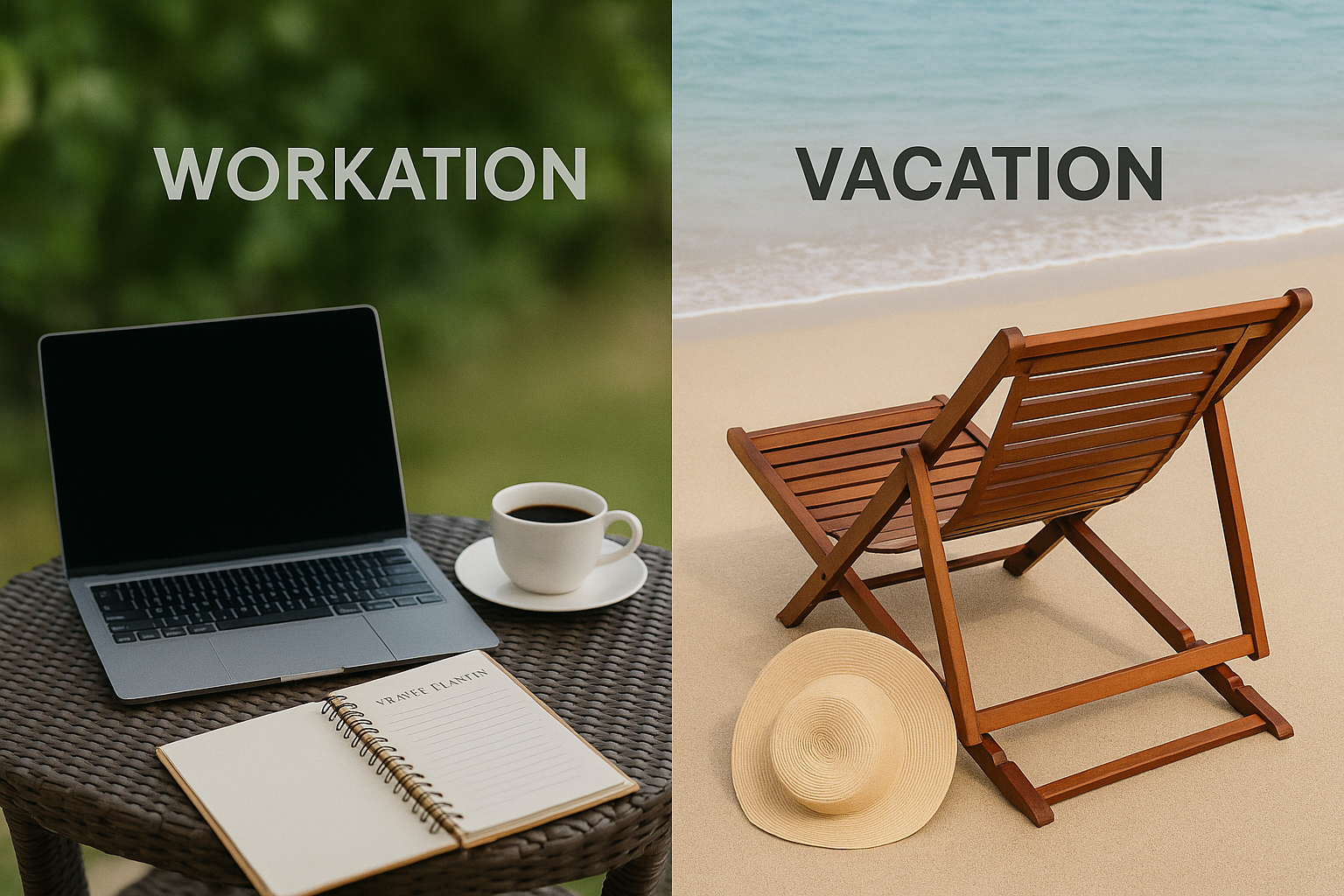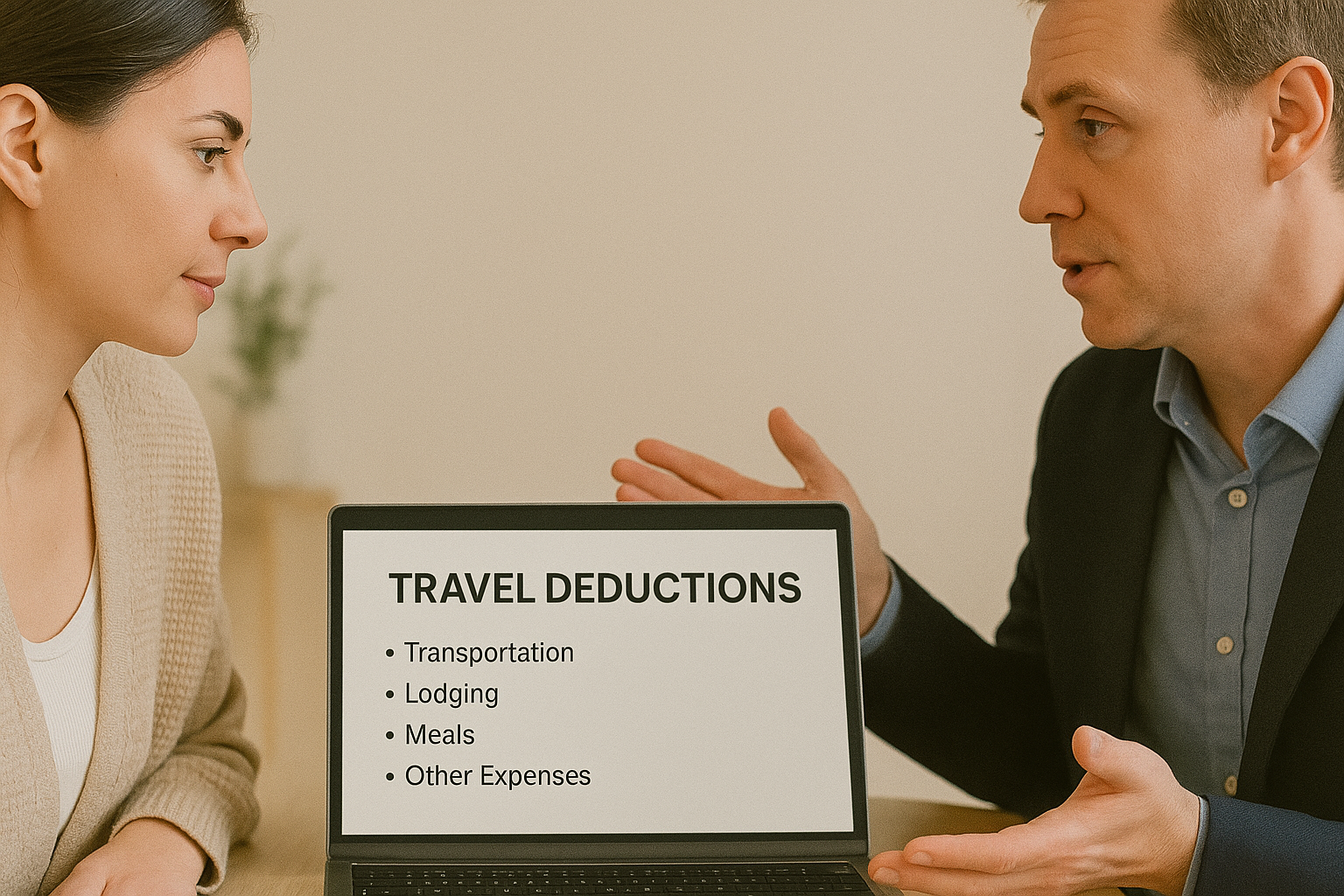Workations vs. Vacations: Which One Actually Benefits Your Business?
Not Every Trip Is a Vacation
Entrepreneurs are known for multitasking — even when we promise ourselves “time off.” The laptop sneaks into the suitcase, ideas start flowing at the pool, and suddenly that relaxing trip turns into a brainstorming session.
That’s where the concept of a workation comes in — a blend of business and leisure that lets you work from anywhere while still taking a break from your usual environment.
But here’s the real question: which one actually serves your business better — a true vacation or a well-planned workation?
What’s a Workation — and Why It Works for Entrepreneurs
A workation is a hybrid approach: part work, part rest. Mornings might be spent checking in with clients or reviewing your goals, while afternoons are free for exploring new scenery.
For many small business owners, this setup offers the best of both worlds. A workation allows you to:
Stay connected without sacrificing freedom
Think creatively in a new environment
Capture marketing content or meet clients in new cities
Turn qualifying travel expenses into deductible business costs
When structured properly, a workation isn’t just a lifestyle perk — it’s a strategic tool for growth, creativity, and tax efficiency.
What a True Vacation Brings to the Table
A vacation, on the other hand, is exactly what it sounds like — a break. No emails, no agendas, no meetings. It’s time to reset, recharge, and return to your business with renewed clarity.
From a tax standpoint, though, pure vacations are personal. They aren’t deductible because they lack a business purpose. That doesn’t make them less valuable — it just means they benefit your leadership mindset more than your bottom line.
The truth is, most entrepreneurs need both: moments to disconnect and trips that inspire.
The IRS Perspective: When Work Travel Becomes Deductible
The line between “workation” and “vacation” often comes down to intent and documentation.
To qualify as a business trip, your travel must have a clear business purpose — and the majority of your days should be devoted to work.
To make it legitimate, include:
A defined business reason (client meetings, content creation, planning retreat, etc.)
Receipts and proof of business activity (emails, schedules, agendas)
Documentation that at least 50% of your trip was business-related
Example:
If you travel to Miami for a three-day client conference and stay two additional days for leisure, the airfare and business-day expenses are deductible. The extra leisure days are not.
Which One Benefits Your Business More?
It depends on your season of entrepreneurship.
If you’re scaling or in a creative season:
A workation keeps momentum going while expanding your perspective. You can build strategy decks on a balcony, meet clients in new markets, or capture marketing content — all while maintaining flow.If you’re recovering from burnout or decision fatigue:
A vacation is non-negotiable. Fully disconnect. Let your systems work for you. You’ll come back sharper, rested, and ready to lead.
Both options are essential — one supports your operations, the other sustains your energy.
Tax-Smart Tips for a Legit Workation
To make your trip compliant and strategic:
✅ Plan your business activities before you travel.
✅ Save receipts and digital proof of your business purpose.
✅ Log your days — at least 50% should be business-related.
✅ Consult your accountant before booking to clarify what qualifies.
These small steps protect your deductions and keep your business organized year-round.
The Out of Office Perspective
At Out of Office, we believe travel and business aren’t opposites — they’re partners in productivity. The goal isn’t to escape your business; it’s to design it so travel enhances it.
When done right, your trips can build relationships, spark clarity, and yes — even save you money.





